This self-directed, self-paced course on feminist perspectives is for anyone who offers spiritual companionship to women, and anyone who receives spiritual companionship from women
Feminist Perspectives on Spiritual Companionship and Direction is a 12-part, 24-hour course, taken at your own pace, for those seeking greater awareness and appreciation around how gender shows up in spiritual accompaniment. It is for women, daughters, sisters, mothers. For grandmothers, granddaughters, aunties, friends. For women storytellers, artists, healers, prophets, sages, visionaries, and life-bringers – all those ready to connect mind, heart and body in a celebration and exploration of women and the art of spiritual companionship. Men are welcome as respectful witnesses.
In this course you will explore topics such as:
- Women’s soul journey and the “dark night of the feminine” with Dr. Beverly Lanzetta - situating and reclaiming the feminine at a deeper stratum of consciousness.
- Women’s legacy in shaping spiritual companionship as we know it today, with Dr. Janet Ruffing RSM - from ancient scriptures through the desert mothers, to modern day leaders and mystics.
- Grandmother wisdom with Pat McCabe / Woman Stands Shining - companioning women into elderhood and the unique spiritual callings for women elders.
- The gifts of the Enneagram to support women’s own self-definition, with Sandra Smith, MDiv - the holy work of claiming and living from our strengths as women.
- The poems of Audre Lorde as a resource for feminist spiritual accompaniment with Dr. Pamela Ayo Yetunde, J.D., M.A., Th.D -- spiritual movements between Western and Eastern spiritualities through the lenses of African-American women who grew up in church and gravitated to Buddhism.
- Women and spiritual friendship with Dr. Diane Millis -- embodied way of listening that increase women’s agency, creativity, capacity to self-author, and spiritual awareness.
- Trauma experienced in spiritual spaces with Sikh music therapist Jasvir Kaur Rababan.
- Shadow work around toxic masculinity and toxic femininity with Jocelyn Burkhart -- appreciating and receiving both male and female energies in spiritual spaces.
- Holding space for women as wounded healers with Pastor Lyvonne Proverbs Briggs, MDiv -- spiritual companionship and male sexual violence.
- God, Feminism and Embodied Healing with Karen Erlichman, DMin, LCSW -- journeys of divination and liberation.
- Women and Nature with Dr. Beth Bartlett -- Bringing an Ecofeminist Understanding to Spiritual Companioning
- And more!
This course honors legacies, calls out challenges and engages contemplative approaches. It invites exploration of opportunities for growth, all from a feminist perspective. In this course you will be nourished, equipped and nurtured in your work of offering and receiving spiritual companionship. Our hope is that it will touch something deep in your core, something that could change your approach to companioning, how you see and experience your life, and how you contribute to awakening and healing the community around you.
Feminist spiritualities and theologies – not to mention the experience of billions of women! – reveal that a woman’s spiritual journey offers a wholeness – and a potential – undreamt of in conventional thinking.
Gift yourself a celebration of women giving and receiving spiritual companionship and spiritual direction!
Sessions
Click on a session title for a detailed description of each week’s content
Session #1: The Dark Night of the Feminine and Spiritual Direction (Beverly Lanzetta)
A vital aspect of the contemporary practice of spiritual guidance is the recognition of new categories of inner, mystical growth. Most often, these insights are the result of experiential encounters, in which we discover that the terms and stages of spiritual development we are taught and use to guide those who share their soul stories with us, are not adequate to the actual lives of many today. All too often classical accounts of the soul’s journey do not express the depth and anguish of the suffering of the feminine.
From my practice, I developed the concept, the “dark night of feminine,” as a way to address a passage into deeper states of consciousness that are particularly relevant to women, but also to healing the most intimate within us, females and males alike.
Consciously recognizing the dark night of the feminine within our understanding of the soul’s journey situates the reclamation of the feminine at a deeper stratum of consciousness and highlights the intensity and depth of our struggle for wholeness. As a refinement of our understanding of the soul, it emphasizes that the violations we experience in social, personal, and spiritual relations have a direct impact on consciousness and on our ability to know self and others.
In this session, Beverly Lanzetta addresses a number of contemplative processes that are distinctive to the passage into the feminine dark night. Her talk will be followed with break-out rooms, an exercise, “Encounters with the Dark Night of the Feminine” and a moderated question period.
Session #2: Celebrating the History of Women in Spiritual Direction (Janet Ruffing)
Spiritual Direction has been a consistent practice within the Christian tradition since the early 4th Century, when women joined the flight to the desert in search of a more contemplative lifestyle. The names of women and their advice appear in collections of Sayings of the Desert Fathers. In this period, some women were hermits and others lived in small settlements of women in a given area. Both the female and male ascetics gathered for Sunday Eucharist and individual spiritual guidance could take place after that service. The practice of spiritual direction after the 4th century was usually related to the practice of confession and reconciliation to the community which changed through out history, and at later periods spiritual direction often took place within the context of the priest/penitent relationship.
However, some women who were abbesses of women’s communities were also involved in the formation of members and their on-going development in the spiritual life. Julian of Norwich, who was an anchoress, in Norwich, England offered spiritual counsel to those who approached her window looking out onto the street, and Margery Kempe, a Lay woman, who was also a mystic, reported that Julian “good counsel gave.” Teresa of Avila much later in Spain sought out the best “confessors” she could for her communities but also counselled her sisters herself as well as the leaders of other convents she had founded.
In the complex relationship between men and women in the church, women found ways of working within the system to foster the spiritual growth of other women. Abbess Hildegard of Bingen, went on preaching tours along the Rhine. Women foundresses of religious communities instructed their members in this life-style and fostered their growth in the spiritual life often in collaboration with sympathetic and competent clergy. Catherine of Siena went on preaching tours, companioned by Dominican priests to hear the confessions of her listeners, whom she had inspired to repent and develop a more advanced spiritual life. She dictated letters of spiritual direction to many people. Teresa of Avila, who reformed the Carmelite sisters with clergy collaborators, John of the Cross, among them, guided her own sisters as prioress, as well as writing letters of support to the prioresses of other convents living by the same rule. Jane Frances de Chantal in Annecy, France, in collaboration with Francis de Sales developed a new community of women and both of them supported the spiritual development of lay women as well.
Within the Society of Friends, Quaker women often had separate “meetings” from the men. The “meetings” themselves were spiritually formative of those who participated, as individuals could seek out a more experienced woman from within the group for spiritual counsel. Within the Anglican Church in England, Evelyn Underhill, a scholar who studied mysticism and wrote a classic on that topic, also led retreats and served as a spiritual director.
Spiritual Direction in the mid 20th century, in response to the reforms of Vatican Il, developed programs explicitly for the training of spiritual directors for both lay and ordained people in spiritual direction by the early 70’s. Simultaneously, others developed interdenominational formation programs for spiritual directors. Women participated from the beginning in this training.
Session #3: Women Elders: Offering Spiritual Companionship to the World (Woman Stands Shining / Pat McCabe)
As women anticipate and approach elderhood, or dwell there already, what spiritual roles might they inhabit? What spiritual tools might they wield? In this session Pat McCabe guides us in an exploration of grandmother wisdom, and the role of women elders as spiritual leaders. How do women elders protect and empower the children, the life-bringers, and the sacred warriors of our societies? Pat will share about the Grandmother’s Lodge and how it can serve as a counterpoint to masculine leadership.
Session #4: Women’s Self-Definition Using the Gifts of the Enneagram (Sandra Smith)
“Who am I in my own eyes?” is a guiding question for women in the process of shifting from other-defined to self-defined.
Noticing how females are portrayed in advertisements, movies, in political commentary, etc. gives us clues about the difficulty women can have in defining themselves. The cultural, patriarchal flow of how women are “supposed to be” is easy to move with. As a woman, how do you experience yourself when you are other-defined? When self-defined? Our bodies have much wisdom to offer us in this discernment and this is crucial work when companioning women.
Study upon study indicates that the sin, or great wound, is vastly different for men than for women. Pride is named as a central wound of men while a lack of self-love is women’s great wound. Lacking a love for self makes room for others to define us. Given this, how might we shape our spiritual direction with women?
During this session, as we consider ways we define ourselves, we’ll explore the gifts and virtues of the nine Enneagram Types and consider offering those not just to others, but to ourselves. In supporting the inward turning of women, the Enneagram Map can serve as guide, indicating how we can claim and live from our strengths. Honoring and valuing our lives as women in a world that more often than not, doesn’t, is holy work. Deep is our hunger to be fully ourselves, to be the ones we were created to be.
Session #5: Poetry by Women as a Spiritual Tool for Wholeness (Ayo Yetunde)
Black lesbian warrior activist poet Audre Lorde (1934-1992) is mostly known as an activist writer who wrote poems and essays about liberation from homophobia, patriarchy, and racism. A closer look at her work demonstrates that her writing is also a resource for feminist spiritual accompaniment. Lorde was raised Catholic, but encountered I Ching in high school, African female deities in adulthood, and secularized meditation in cancer treatment. Lorde wrote at least 18 spiritual poems in her teens that are in her papers archived at Spelman College in Atlanta, but have not been published. In this workshop, we will discuss Audre Lorde’s life and poems, how to use her unpublished poetry as tools for feminist spiritual accompaniment, and the spiritual movements between Western and Eastern spiritualities through the lenses of African-American women who grew up in church and gravitated to Buddhism.
Session #6: Hearing to Speech: An Exploration of Women’s Spiritual Friendship (Diane Millis)
“Once a person is heard to speech she becomes a hearing person. ”
— Nelle Morton, The Journey Is Home
Friendship is both a gift and a profound spiritual practice. In this session, we will draw upon perennial wisdom and our own lived experience as we explore: What is unique to friendships among and between women? How through our friendships do we help one another to discover and become more of who we are called to be? How might we as spiritual companions contribute to the flourishing of friendship in the public square?
In this session, we will …
- Become acquainted with feminist theologian Nelle Morton’s understanding of “hearing to speech” and its implications for spiritual friendship;
- Explore how we as spiritual directors can help more women to develop their capacities for deep listening and spiritual accompaniment;
- Reflect on our own experiences of hearing, and being heard, to speech;
- Consider how this embodied way of listening has the potential to increase women’s agency, creativity, capacity to self-author, as well as expand their spiritual awareness.
Session #7: Transforming Trauma: Guiding Women to Healing Through Sacred Music (Jasvir Kaur Rababan)
Trauma is a difficult word that evokes many emotions.
How can we understand Trauma from a different lens?
What if you could learn how to free yourself from the shackles of trauma?
What if you could reframe your past experiences, where you get to choose the role that they play in your life or how much power they hold over you?
Jasvir Rababan MBE is not only an academic in the field of Sikh Music Therapy but also an expert by experience, having applied these techniques on herself to free herself from her own shackles of trauma. Jasvir works with her clients taking them on that very journey of healing and transforming their trauma into emotional freedom. Through the emotional liberation she has experienced, Jasvir has stepped into spaces of social activism to tackle taboo issues such as sexual abuse within the South Asian Community and last year launched the #metooSikh campaign.
This spirit of the Warrior Saint that Jasvir embodies, that also lives within each of us is the essence of what you will explore in this session.
You will learn more about how trauma houses itself within the physical body and understand more about how this trauma can be released using music. Through the ancient Raag system you will discover how the journey of emotional transformation is formed and how it can open the pathway to discovering and finding your inner warrior saint.
This will be a session exploring and connection with the healing, strength, resilience and transformation that exists within each of us.
Session #8: Owning and Integrating Our Feminine Shadow Nature (Jocelyn Burkhart)
In this session, participants will have an opportunity to explore aspects of their shadow nature, including identifying how this presents in both masculine and feminine ways, in their own lives, and in the collective. Tools and practices will be shared for inquiry and integration, for both personal process and for companioning others.
Session #9: Wounded Healers: Spiritual Companionship and Male Sexual Violence (Lyvonne "Proverbs" Briggs)
According to RAINN (Rape, Abuse, and Incest National Network), at least 1 in 4 girls and 1 in 6 boys will be sexually abused by the time they’re 18-years-old. When you start talking to communities of color, however, it’s more like 1 in 2. And, for Black girls, at least 70% of us will be sexually abused before we can vote. Male sexual violence was a pandemic long before COVID-19, so it’s abundantly clear: you may be companioning survivors and, you are likely a survivor yourself. I see you.
Join Pastor Lyvonne Briggs for an exploration of how we can hold space for those we companion, ourselves, and our spheres of influence as we journey towards holistic healing.
In this session we will learn how to:
- Shift from trauma-informed care to healing-centered engagement
- Carve out safe, protected space for directees who are survivors of male sexual violence
- Implement sensuality as a spiritual practice for both self and communal care
Radical truth-telling is the first step in creating a more just and equitable world…Lyvonne guides us in facing the truth, no matter how gory, together.
Session #10: Created in the Divine Image: Spiritual Direction, Feminism and Radical Healing for This Moment (Karen Erlichman)
Spiritual companions create trustworthy, sacred spaces in which people can heal and dismantle historical systems that have dehumanized women, gender non-binary and transgender people, Black, Indigenous and People of Color, LGBTQ+ people, immigrants, poor and disabled people, Jews and others whose religion/spirituality is outside of Christian hegemony. This session will explore a feminist approach to spiritual direction that offers unique rituals, tools and practices for reclaiming and renewing the embodied experience of being created in the image of the Divine. As Sister Mary Ann Scofield wrote, as spiritual companions we are being called to be faithful to God’s “subversive values…that set us afire for justice.”
Session #11: Women and Nature: Bringing an Ecofeminist Understanding to Spiritual Companioning (Beth Bartlett)
We are companions on this earth with beings of all kinds – from the rooted ones to the four, six, and eight-legged ones, the winged and finned ones, the rocks and rivers, seas and stars – we are all related. Many women find their greatest spiritual source and sense of wholeness and connection in nature.
Ecofeminism recognizes the common and intertwined roots of the oppression and the liberation of women, the earth, animals, and colonized Others. We will examine both the Western paradigm that has led to these oppressions, and how we might uproot them using an ecofeminist lens. We will also explore how body/mind value dualism in Western culture has resulted in a separation of divinity and spirit from body and earth in many religious and spiritual traditions, and present a nondualistic alternative of the immanence of the divine and embodied spirituality. Finally, we will explore our own relationships with the earth – the wonder and awe, the wisdom that comes of listening, the depth of connection, as well as the grief we experience in the disregard and destruction of the earth – and ways we can incorporate these in our spiritual companioning.
Some of the sources we will be drawing from include: Susan Griffin, Carol Christ, Rosemary Ruether, Starhawk, bell hooks, Linda Hogan, Luisah Teish, Vandana Shiva, Karen Warren, Greta Gaard, Alice Walker, Robin Wall Kimmerer, and the water walkers, as well as our own experiences and connections with the earth.
Session #12: Goddess Spirituality and Course Wrap Up
Presentations from live course participants:
- Cathy Wicks: Group Image meditation
- Valerie Langston Brettillo: Goddess Spirituality
- Michelle Landry: The power of Circle to transform
- Meisaan Chan: An embodied meditation that decolonizes the Christian gesture of praying hands and reframes it – the gesture of praying hands – into an embodied message of infinity.
Schedule
Each segment of this course is 2 hours and you are invited to proceed at your own pace.
The live course met from January 27 to April 14, 2021.
Additional Information
- 24 Continuing Education Units (CEUs) credits are available for all those who participate. SDI will provide a certificate of completion for self-reporting to agencies.
- Scholarships are available for those facing financial hardship. Please apply here.
Faculty

Beverly Lanzetta
Beverly Lanzetta, Ph.D. is a theologian, contemplative scholar and teacher, and the author of many groundbreaking books on emerging global spirituality and new monasticism, including A New Silence: Spiritual Practices and Formation for the Monk Within, The Monk Within: Embracing a Sacred Way of Life, Radical Wisdom: A Feminist Mystical Theology, and Foundations in Spiritual Direction. A monk of peace, she is dedicated to a vision of theological openness and spiritual nonviolence; her work has won praise for its wisdom, eloquence, and mystical insight and is considered to be a major contribution to what theologian Ursula King called “a feminine mystical way for the 21st century.” Dr. Lanzetta has taught theology at Villanova University, Prescott College, and Grinnell College and has started a number of religious and monastic initiatives including the Desert Interfaith Church, Interfaith Theological Seminary, Hesychia School of Spiritual Direction, and the Community of a New Monastic Way. She is a much-sought-after mentor for the new generation, including the “spiritual but not religious” and new monastics alike, as she brings with her forty years of experience as a guide to answering the universal call to contemplation.

Janet Ruffing
Janet Ruffing, RSM, MAS, Phd. Christian Spirituality, is one of the founders of Spiritual Directors International and was on the first Coordinating Council. She has published widely in Spirituality, written two books on Spiritual Direction, including To Tell the Sacred Tale: Spiritual Direction and Narrative and Spiritual Direction: Beyond the Beginnings. She taught spiritual direction at Mercy Center, Burlingame, and at Fordham University from 1986-2009. She has published more than 100 articles and has often written from a feminist perspective. Most recently, she was Professor of the Practice of Spirituality and Ministerial Leadership at Yale Divinity School until she retired in June, 2020.

Pat McCabe
Pat McCabe (Weyakpa Najin Win, Woman Stands Shining) is a Diné (Navajo) mother, grandmother, activist, artist, writer, ceremonial leader, and international speaker. She is a voice for global peace, and her paintings are created as tools for individual, earth and global healing. She draws upon the Indigenous sciences of Thriving Life to reframe questions about sustainability and balance, and she is devoted to supporting the next generations, Women’s Nation and Men’s Nation, in being functional members of the “Hoop of Life” and upholding the honor of being human.
Her primary work at the moment is:
- The reconciliation between the masculine and feminine, Men’s Nation and Women’s Nation
- Remembering, recreating or creating anew a narrative for the Sacred Masculine
- Addressing the Archetypal Wounding that occurred in our misunderstanding and abuse of technology in prayer, ceremony and science
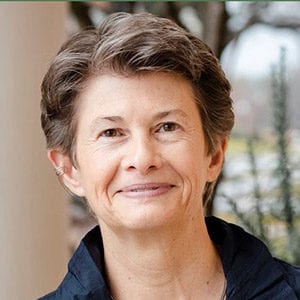
Sandra Smith
Sandra Smith, MDiv, a certified Enneagram teacher, has taught the Enneagram for over 20 years to international audiences. She is an IEA Accredited Professional whose teachings work with the complexities and nuances of the Enneagram System. She co-hosts the podcast, Heart of the Enneagram, and co authored its companion book. She is a Spiritual Companion and lives in Asheville, NC, USA.

Ayo Yetunde
Pamela Ayo Yetunde, Th.D., is the founder of Audre: Spiritual Care for Women with Cancer at Center of the Heart (www.centeroftheheart.org). She is a chaplain, pastoral counselor, and spiritual director. Ayo is the author of Black and Buddhist: What Buddhism Can Teach Us About Race, Resilience, Transformation and Freedom, and “Audre Lorde’s Hopelessness and Hopefulness: Cultivating a Womanist Nondualism for Psycho-Spiritual Wholeness” in Feminist Theology, 27 (2):176-194 (2019).
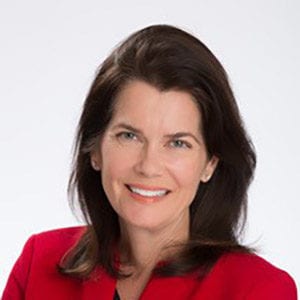
Diane Millis
Diane Millis is an educator, author, and spiritual director. Her most recent book, Re-Creating a Life, invites readers to discern how to tell their most life-giving story. She currently teaches at United Theological Seminary in St. Paul, MN (USA). She served as host and producer of Lives Explored for the Collegeville Institute, an educational video series that invited guests to share their stories of discernment and calling.
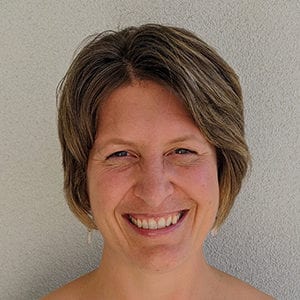
Jocelyn Burkhart
Jocelyn Burkhart is a deep listener with a passion for embodied awareness, metaphysics, and the natural world. Her private practice offerings include spiritual direction and supervision, as well as facilitator formation and business coaching for soul centered coaches, companions, healers, and leaders. Influences in her reflective and intuitive approach include spiritual direction formation with Ontario Jubilee Associates, Yasodhara Yoga teacher training, Shamanic and land-based approaches, and many different energy healing modalities, most recently including Neuroshifting. With over 20 years experience as a facilitator of adult experiential education and self awareness programs, including 5 years instructing in the Faculty of Education at Lakehead University, Jocelyn loves to teach and learn in both playful and practical ways. Her wide open engagement with aliveness often finds creative expression through singing, dancing, writing, cooking, gardening, adventuring and making art.
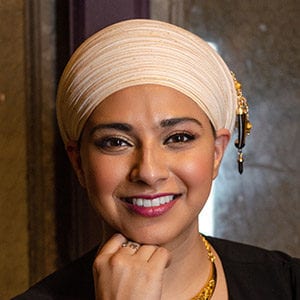
Jasvir Kaur Rababan
Jasvir Kaur Rababan is a Sikh Music Therapist and Community Leader whose unwavering compassion, wisdom, and dedication have all earned her the reputation as a service-centered visionary. Throughout the span of nearly two decades, she has garnered extensive experience in the ancient practice of Naad Yoga, armed with the knowledge imparted upon her by her trusted mentor, Yogi of Sound Professor Surinder Singh. To this day, she continues to be the only Sikh woman who is breathing life back into this sacred healing practice across the globe.
A strong believer of solidarity and giving back to her community, Jasvir established KaurVoices, a safe space that provides heart-centered advocacy to courageous individuals who have endured trauma. Ultimately, this platform grants a voice to those who have felt silenced for far too long. Creatively driven, she also serves as the Executive Producer of an award-winning documentary entitled, “Sikh Musical Heritage – The Untold Story,” which is now screening worldwide.
No matter what venture she undertakes, Jasvir Kaur Rababan’s primary mission is to awaken people to their greatest potential and show them that personal transformation isn’t only possible, it’s inevitable. By stepping into our best versions and being the love that we wish to see in society, we change not only ourselves but the world around us.

Lyvonne "Proverbs" Briggs
Lyvonne “Proverbs” Briggs, lovingly known as “Pastor Bae,” is an Emmy Award winner, body and sex-positive womanist spiritualist. She is a writer, pastor, preacher, spiritual life coach, and highly sought after transformational speaker and seminar leader. A TEDx speaker, she has been featured in ESSENCE, Cosmopolitan, and The Washington Post magazines and Sojourners named her one of “11 Women Shaping the Church” in March 2019. Briggs is the founder of beautiful scars, a healing-centered storytelling agency focused on fostering pleasure and resiliency. She is also the curator of The Proverbial Experience, a series of twice weekly spiritual gatherings via Instagram Live. A former pastor and certified spin instructor, Briggs offers consulting for sacred and secular institutions. She has partnered with Lyft, Auburn Seminary, the Atlanta University Center, San Francisco Department of Health, Young Women Social Entrepreneurs and more. She serves on the board of Art and Abolition, an organization that exists to heal, empower, and protect young girls in Kenya who have survived male sexual violence. Briggs is a graduate of The Lawrenceville School, Seton Hall University, Yale Divinity School, and Columbia Theological Seminary. She is a proud member of Delta Sigma Theta Sorority, Incorporated and the inaugural cohort of the DO GOOD X Startup Accelerator. Briggs, a New York City native, is currently based in New Orleans, LA and can be found on Facebook and LinkedIn. You can also follow her on Instagram and Twitter: @LyvonneP.
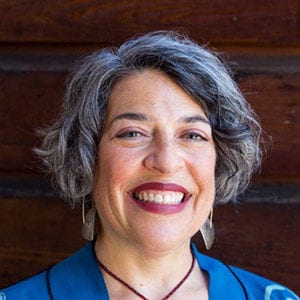
Karen Erlichman
Karen Erlichman, DMin, LCSW provides psychotherapy, spiritual direction, supervision and So(U)L coaching in San Francisco, with a mind-body-spirit approach to healing. Karen’s writing has been published in numerous journals, blogs and anthologies, including Presence: An International Journal of Spiritual Direction, Tikkun, Feminist Studies in Religion and in the interfaith anthology Spiritual Guidance Across Religions. She is passionate about creating diverse and welcoming spaces for liberation, embodied spirituality and community. Her website is here.
Hosts
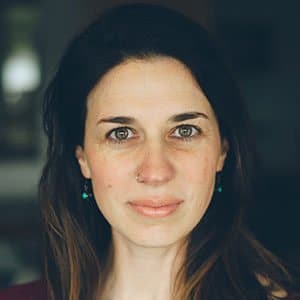
Frederica Helmiere
Frederica Helmiere is a global professional, scholar, teacher and complexity enthusiast. Inspired by the subversive-mystical Christian tradition and a penchant for mountains, she has spent two decades exploring entanglements at the intersections of spirituality, social justice, and ecology. Prior to joining SDI, Frederica served as a global interfaith peacebuilder with the United Religions Initiative and as a professor at the University of Washington and Seattle University, teaching undergrad and graduate courses on religion, power and privilege, and global concerns of social and environmental justice. Frederica holds two masters degrees from Yale Divinity School and Yale School of Forestry and Environmental Studies, and a BA from Dartmouth College in Religion & Environmental studies. She lives and plays in Seattle with her partner and two young children.
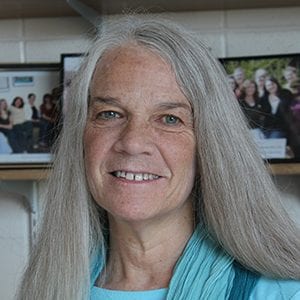
Elizabeth Ann Bartlett
Beth Bartlett, Ph.D., is an educator, author, activist, and spiritual companion. She is Professor Emerita of Women, Gender, and Sexuality Studies at the University of Minnesota-Duluth, where she helped to co-found the Women’s Studies program in the early 80s, and taught political and feminist thought, including courses on women, religion, and spirituality, for forty years. She also served for many years as the co-facilitator of the Spirituality Task Force of the National Women’s Studies Association. She is the author of numerous books and articles, including Journey of the Heart: Spiritual Insights on the Road to a Transplant, Rebellious Feminism: Camus’s Ethic of Rebellion and Feminist Thought, and Making Waves: Grassroots Feminism in Duluth and Superior. She is trained in both Somatic Experiencing® and Indigenous Focusing-Oriented trauma therapy, and offers these healing modalities through her spiritual direction practice, and recently, through racial healing workshops. She has been active in feminist, peace and justice, indigenous rights, and climate justice movements and has been a committed advocate for the water protectors.

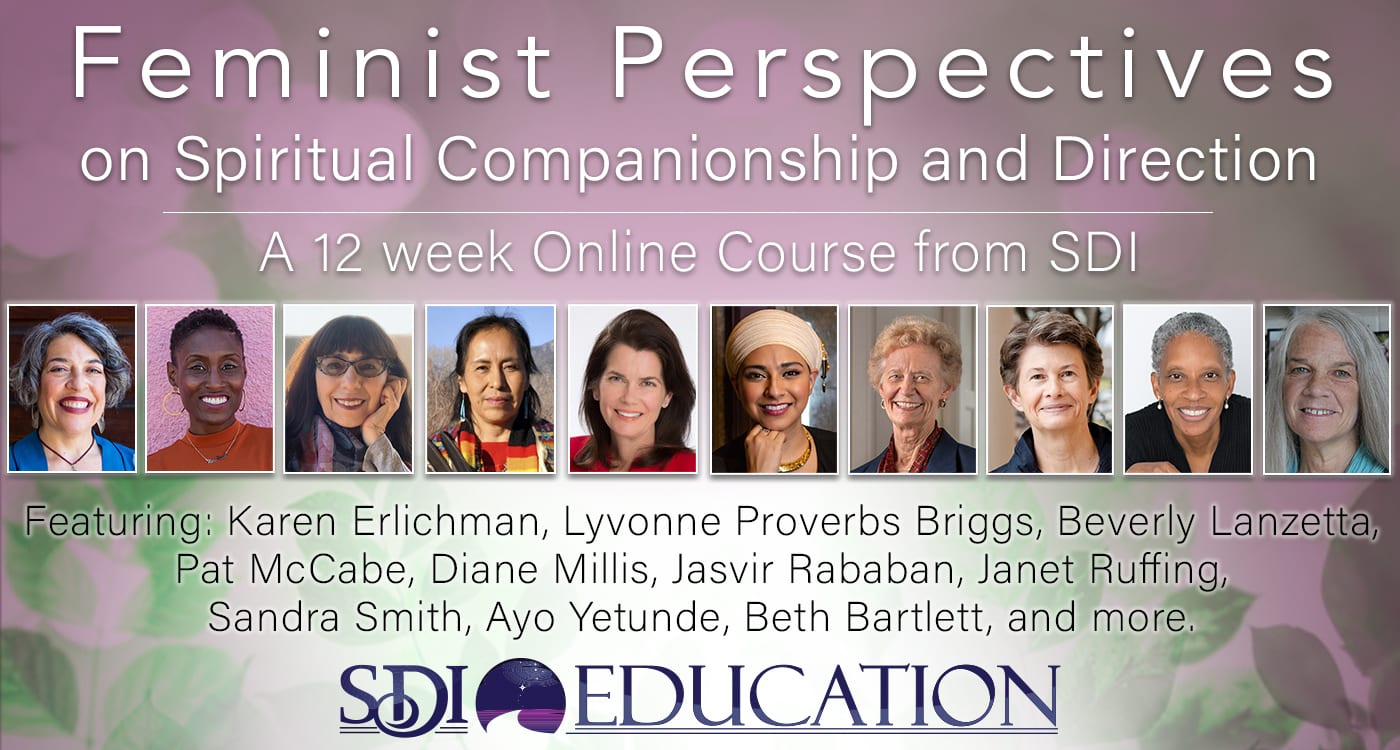



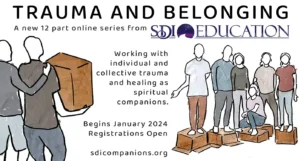
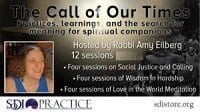
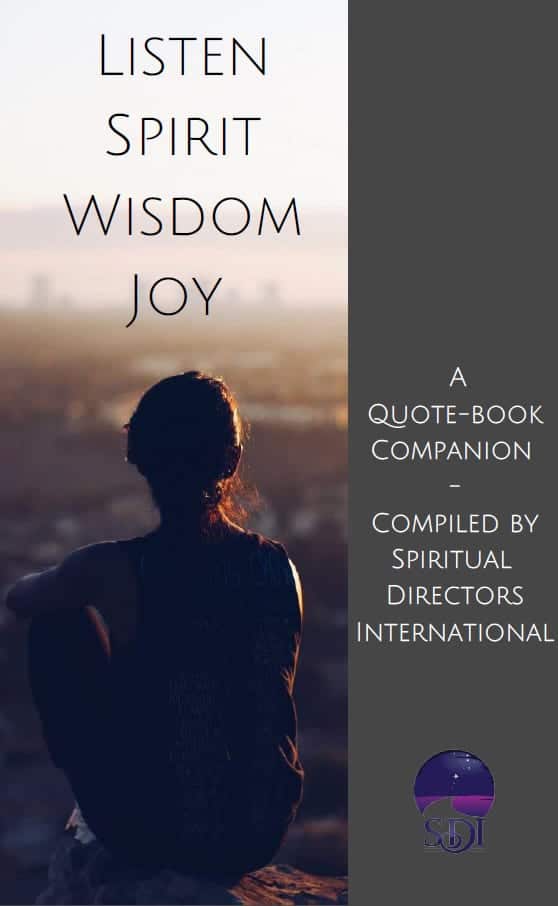
Reviews
There are no reviews yet.